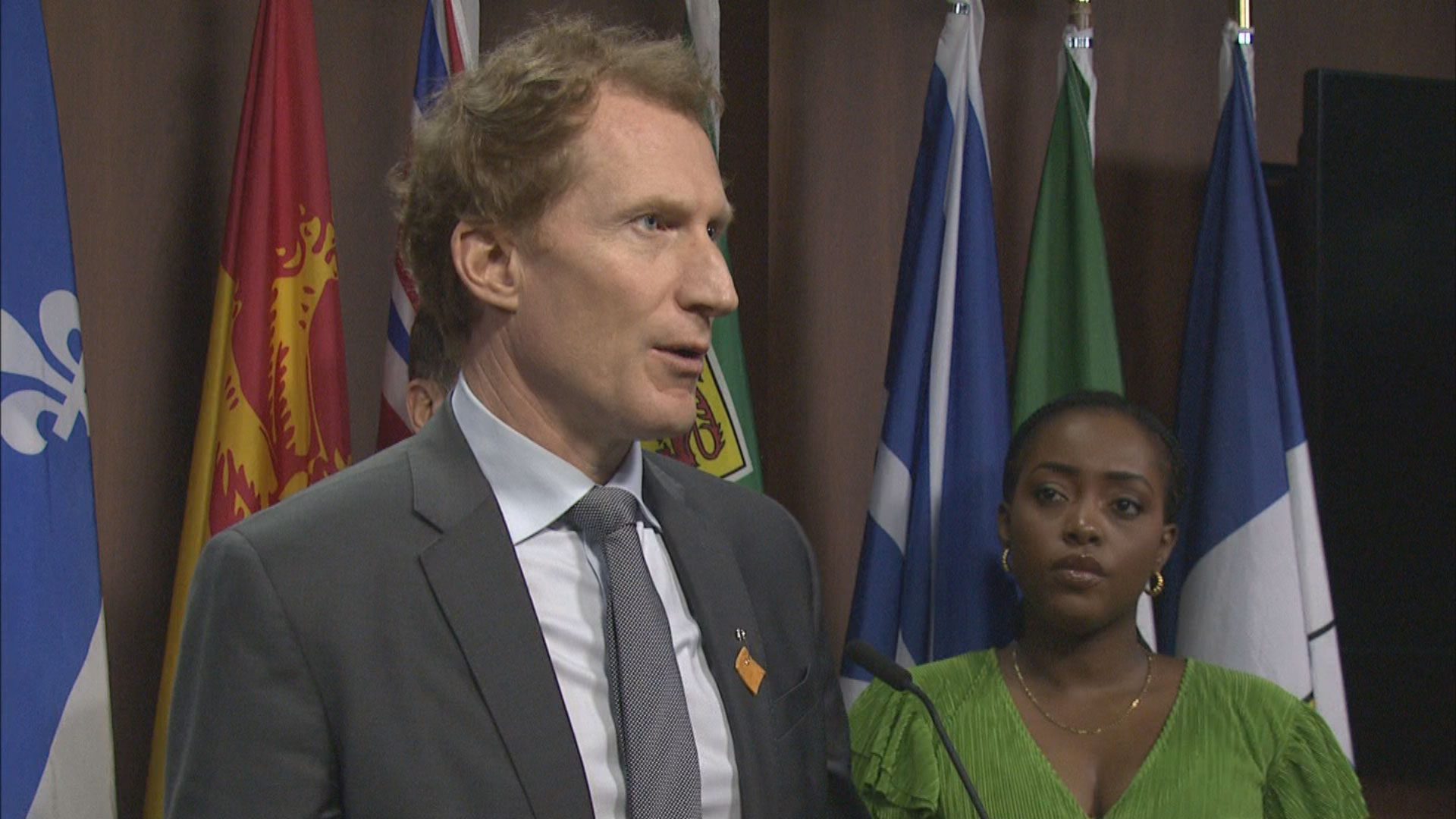The interlocutor charged making recommendations to the federal government on the most respectful and culturally appropriate “treatment” of and protection of unmarked graves says some lands where searches need to take place are in need of government protection.
Kimberly Murray, the independent special interlocutor for missing children and unmarked graves and burial sites, told a Senate committee on Tuesday that some of those sites now sit on private land or are at risk of being developed.
“We have landowners who aren’t allowing survivors onto properties even to do ceremony, let alone search the grounds,” Murray said. “My office has had to write letters and have meetings with landowners to convince them that this is the right thing to do.
“We have landowners who have campers on top of graves. On top of known graves. We don’t have any laws to put a stop to this.”
Murray said what’s needed is legislation to protect these sites from further damage so they can be searched properly. She said what’s in place now is a patchwork of laws across the country that few take seriously.
“Provinces that tell developers if you find remains, you have to report that, that’s too late in my respectful opinion,” Murray told the committee. “It’s too late when the shovels hit the bones of our ancestors there has to be an earlier process to stop the development.
“We have industries that know what the law is and aren’t abiding by the law.”
Murray said there is currently no enforcement to ensure that when bones are discovered that construction companies do more than cover any discovery up with dirt.
“We know that the law is when those shovels hit the bones of our ancestors and they don’t report it to the coroner’s office or the police. They re-bury those bones and don’t tell anyone.” she said. “We have examples of that across the country and then they get off and they’re not convicted and they’re not charged.”
She said the federal government needs to pay for searches of locations off residential school sites.
She gave examples of children being sent to so-called “Indian hospitals,” provincial hospitals and mental health facilities off school grounds. Those searches aren’t currently paid for by Canada.
“There are searches of those grounds all across the country that communities are interested in doing,” she said.
‘We have some problems’
With Canada only currently willing to pay for searches on 140 “recognized” residential school sites under the Indian Residential School Agreement (five more were added under what is called the Anderson Agreement), some sites will be missed said Murray.
“There are many more institutions across the country where children are buried,” Murray said. “We don’t have legislation to protect these grounds. We don’t have legislation to give access to search these grounds.”
Later on Tuesday, Crown-Indigenous Relations Minister Marc Miller said there are options to solve the problem.
“The outright purchase of the land and securing for the community in question,” said Miller. “But in the face of an unwilling seller or one that is looking to perhaps extort or get really high value off a particular piece of land at the expense of people’s emotions and during a very difficult circumstance, we may have to take other measures in conjunction with the municipalities or the province.”

Miller said he’ll wait for Murray’s report before deciding but added legislation to protect the sites isn’t out of the question.
Lawyer Donald Worme said that in addition to the federal government, provinces are complicating the matter by claiming jurisdiction and sovereignty.
“We have little brother, the provincial governments, insisting, in Saskatchewan and Alberta, for example, that they have sovereignty over the lands and resources,” Worme told the committee. “We have difficulty enough as it is accessing lands where Indigenous children are buried under this presumed sovereignty.”
Murray said her interim report will be delivered in June looking at the scope of unmarked graves – and what to do about them.
She added that Canada extending its willingness to pay for searches to 2025 isn’t long enough. She said the process could take between ten and 20 years.
“We can’t treat this sacred work as a program,” she said.









